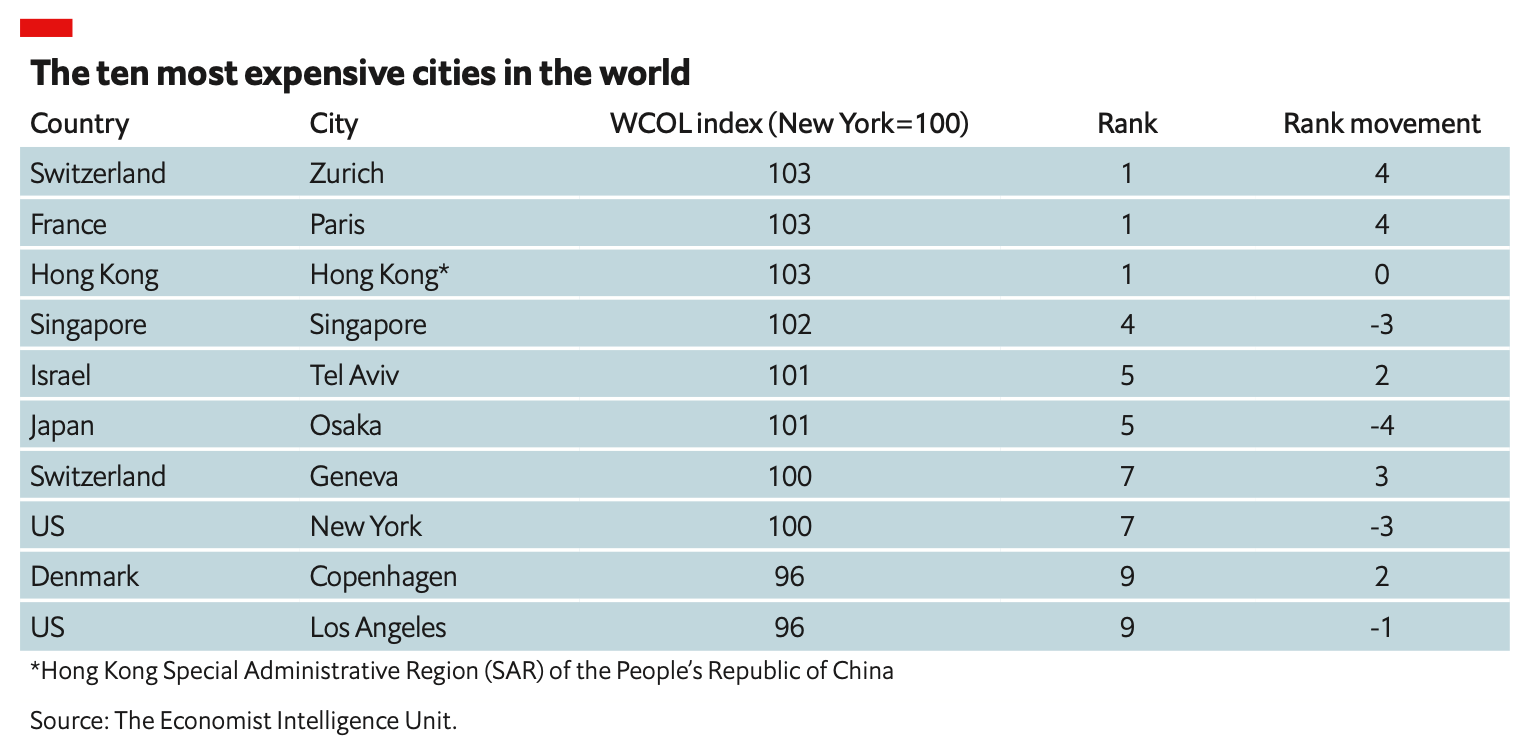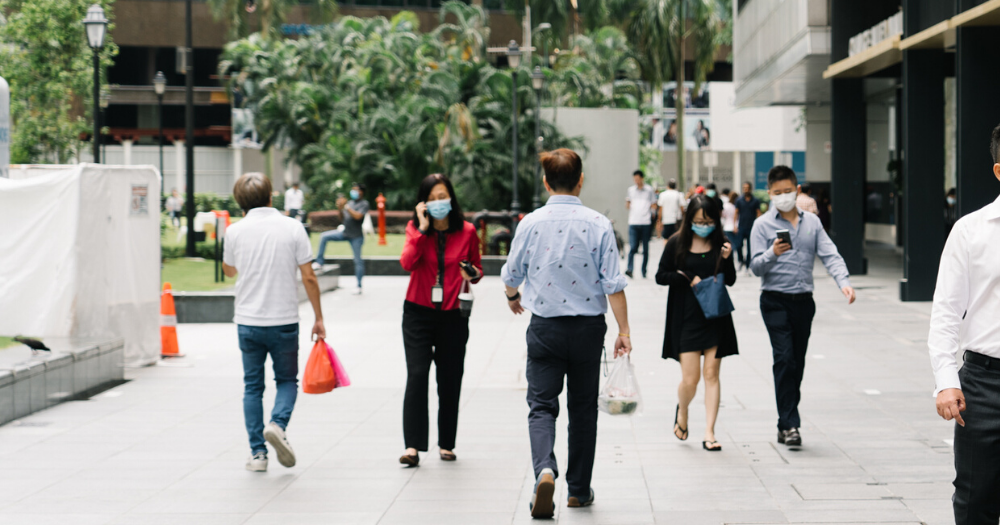Singapore is no longer the most expensive city in the world, says the Economist Intelligence Unit (EIU), in the 2020 edition of its "Worldwide Cost of Living" report.
Instead, it is now the fourth most expensive, behind Zurich, Paris, and Hong Kong, which share the top spot as the most expensive cities to live in in 2020.

Singapore had held the top spot from 2014 to 2019.
This year's report focused on how prices of consumer goods were affected by Covid-19.
Thus, it looked at factors like "currency volatility, supply chain problems, the impact of taxes and subsidies, and shifts in consumer preferences" in light of the Covid-19 pandemic.
Why did Singapore move down the rankings?
The EIU's summary report said that prices in Singapore fell in 2020 due to "an exodus of foreign workers."
The EIU also pointed out that Singapore's overall population contracted for the first time since 2003.
This has led to a fall in overall demand, resulting in deflation.
Singapore top of the list since 2014
Singapore first emerged at the top of the list as the most expensive city in 2014, and continued to hold the title for five more years.
In 2019, Singapore shared the top spot with two other cities — Hong Kong and Paris.
The 2014 report attracted a response from the Singapore government on the gov.sg website, which states that the EIU's survey findings "do not reflect the cost of living of Singaporean households."
The website pointed out that the survey converted prices into US dollars, making the rankings sensitive to currency fluctuations.
It also highlighted that the list of goods and services surveyed " includes items like filet mignon and international foreign daily newspapers", which it said was "quite different" from what Singaporeans would regularly consume.
Global trends
The EIU identified several reasons for shifts in the rankings, including:
- Supply-chain problems such as toilet roll and pasta shortages, which drove prices up in some of the categories the EIU studied.
- Government action such as price controls, in response to panic buying.
- Decreased spending in response to a fall in incomes. This was the case in many countries in spite of government support.
- Changes in lifestyles due to the pandemic, affecting shoppers' views on which goods and services are considered essential.
What is the EIU's methodology?
The EIU's Worldwide Cost of Living survey compares more than 400 individual prices across 138 products and services in 130 cities.
The prices include "food, drink, clothing, household supplies and personal care items, home rents, transport, utility bills, private schools, domestic help and recreational costs."
EIU researchers survey a range of stores, from discount stores to luxury outlets, for over 50,000 individual prices.
The prices are converted into US dollars under the prevailing exchange rate and compared to a base city, New York City.
Other appearances by Singapore in EIU rankings:
Totally unrelated but follow and listen to our podcast here
Top photo by Andrew Koay
If you like what you read, follow us on Facebook, Instagram, Twitter and Telegram to get the latest updates.
